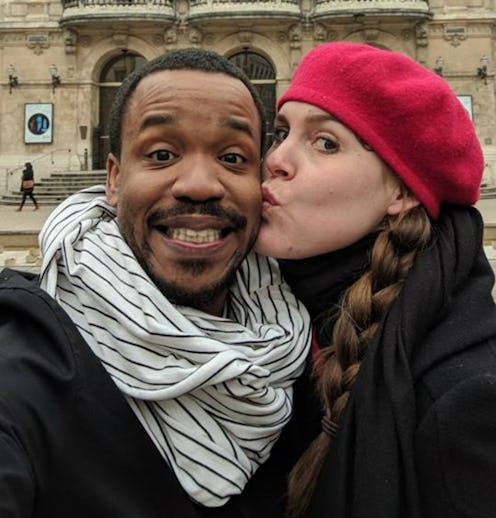Life
Healthy Relationships Are Predicted By How Well You Know Each Other, Not How Alike You Are

My partner and I are very different. He’s an introvert — I’m an extrovert. He’s a minimalist — I love kitsch. He wears all black — I prefer bright, clashing colors. He’s tech — I’m handmade. I wouldn’t go so far as to say we fit under the “opposites attract” cliché, but we certainly aren’t an obvious match. And those differences have undeniably chafed over the years, sometimes to the point of being downright painful. Have I occasionally caught myself wishing he loved weird 1950s furniture as much as I do? Sure. Sometimes when times were tough, did I find myself fantasizing wistfully about a man who loved every weird thing that I loved? Of course.
But over the five years that we’ve been together, we’ve worked hard to learn about each other and appreciate those differences. I couldn’t care less about bamboo, but I bought him some as soon as we moved into our new home. He would never wear the clothing in the style of the things that I make for myself, but he loves that I make them. We understand each other, even if we often think the other is super weird. (And by “often,” I mean at least three times every day.)
And according to a new study, he and I are on the right track. (Side note: I love it when science backs up my life choices.) The study was conducted by behavioral neuroscientist and current fellow at the Insight Data Science Program, Dr. Isaac J. Perron, Ph.D. Dr. Perron analyzed responses from users of the Happy Couple app in order to determine what the most important factors for relationship health are.
Happy Couple has more than 600,000 users who have collectively answered more than 120 million questions, making it a rich data source. The app gamifies learning about your partner by offering five questions per day and they commissioned the study to see if it was helping couples get to know each other. Once both you and your partner answer a question, the app decides whether or not you agree. If you do, you get points for “alignment,” or being like each other. You can also guess how you think your partner will answer. If you get it right, you get points for “connection,” or knowing your partner well.
In order to measure relationship health, Dr. Perron examined a sample of 8,302 users who rated their relationship in four areas: discouragement, sex, communication, and fighting. In order to gauge those areas, he looked at answers to four questions that Dr. Lonnie Barbach, couple's therapist and Director of Content for Happy Couple, identified as being strong indicators of relationship health: “Do you feel discouraged about resolving some of your relationship issues?” “How would you rate your communication?” “How would you rate your sexual relationship?” “Would you say your fights get out of control?” He then looked at how answers indicating either alignment or connection in the app's six categories of questions (sex, emotional, information, recreation, responsibilities and communication) affected people's health scores.
- “How would you rate your communication?”
- “How would you rate your sexual relationship?”
- “Would you say your fights get out of control?”
After examining the data, Dr. Perron found that guessing correctly for the communication category was one of the biggest contributors to relationship health in the categories of discouragement, communication, and fighting. Knowing each other’s answers, then, was more important even then having the same answers. Interestingly, he also found that the only category for which communication wasn’t the number one predictor of relationship health was sexual health. For that one, the most important factor was sexual connection.
I have to admit: It's only in the past year or so that I’ve become truly comfortable with how different my partner and I are. (And I also should point out that we’ve become more alike over the years, while still definitely staying true to ourselves.) But studies like this give me hope that not only are couples like us — couples who are so different from each other — going to be OK, but we might actually thrive. Being different from each other means we have to talk about a lot, without making assumptions that we might make if we were more similar. And as Dr. Perron found, communication is key. So this is a high five to all the introverts paired with extroverts; minimalists paired with kitschy goofs out there. You’re going to be OK.